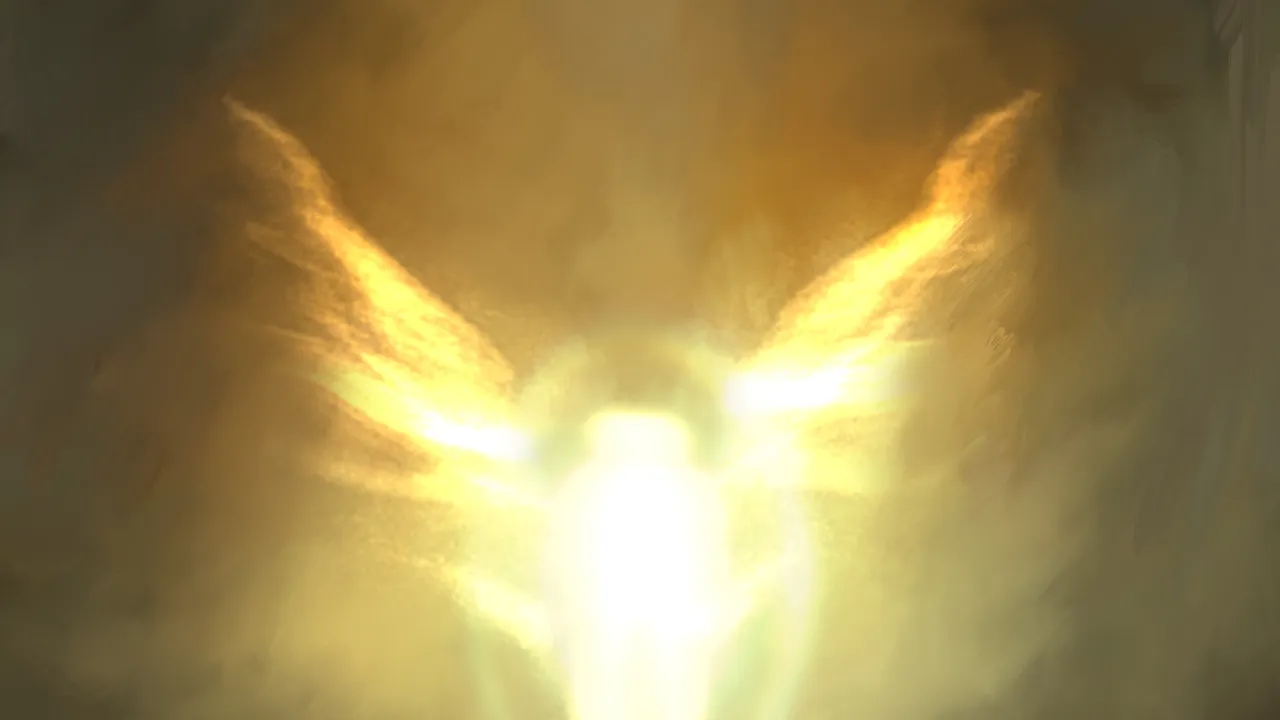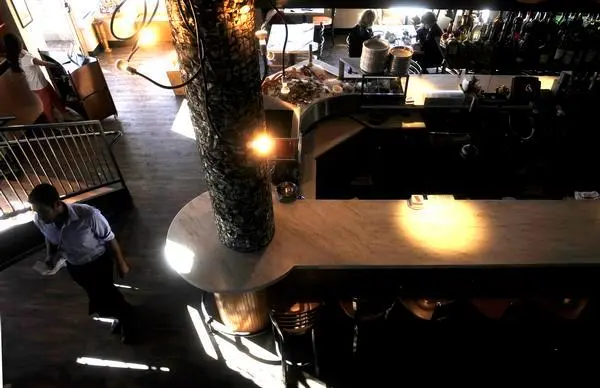Copyright Pitchfork

Opening frame: a dimly lit restaurant situated on the 52nd floor, with window views overlooking the River Thames on a weekday evening. Coworkers engage in unintelligible chatter at the bar. Clinking cutlery provides the background music. A lone woman is shamelessly filming foodie content with her front camera. The shot pans to a two-top in the corner where two bastions of British rap excellence—Dave and Kano—par over wagyu steak dinners. It’s a rare link for the pair, who occasionally intersect through work but haven’t made much time to meaningfully engage. For 27-year-old Dave, this is a dream scenario. He’s tracked Kano’s career since he was in secondary school, recognizing the East London legend’s journey as a road map. Now, as he sits atop the present-day rap food chain and in the center of Britain’s culture sphere, Dave is seeking counsel from someone who’s weathered the storms of stardom, public life, and survivor’s guilt for two decades. “I wanna know, what life was like in your teens? We shared dreams. How’d you do it? Do you have regrets? What’s your life like?” These questions establish “Chapter 16,” a track from Dave’s third studio album, The Boy Who Played the Harp. The song is a six-minute, convincingly genuine conversation between him and Kano, who offers reflections that are both nuanced and emotionally effective. “Some years’ll worsen you and some will better you,” he says to Dave’s angst. Over James Blake’s melancholic ad-libs and piano strokes, the two beautifully articulate what life feels like from their respective positions in the Black British lineage. Dave feels his role changing as he ages: He’s inching closer to 30 and feels pained watching the youth from his area make decisions that leave lasting damage. Artistically, he struggles over whether any of it matters. Romance is still complicated: “Love? I can’t seem to find it,” he admits. To those concerns, Kano urges him to stop rejecting companionship, to take pictures with friends who may fade away in the future, and to grab every accolade that British institutions denied folks of his generation. “Chapter 16” becomes especially powerful when Kano starts asking the questions: “Can you ever see when you’re just someone’s wallet? Have you ever smelt when a cousinship turns rotten?…Tell me, have you ever tasted victory and didn’t want it?” The inquiries are a beautiful reminder that, in intergenerational relationships, there’s much to be learned from all sides. But, within the context of The Boy Who Played the Harp, they lay out the stakes that Dave faces throughout its 47 minutes. A couple years ago, we heard Dave in another back-and-forth with a fellow UK rap superstar. In 2023, on the occasion of their respective 25th birthdays, he and Central Cee released a collaborative four-track EP, Split Decision. It was a quintessential summertime offering; its cover art depicted a Ferrari F40 being hoisted onto a yacht. Cench’s tight, staggering flows were on default settings; he covered familiar themes like taking women on vacation, his previous life as a misguided youth, and how much cash he’s been stockpiling. But for listeners of Dave, the EP was a respite from regularly scheduled programming. The Streatham representative isn’t any stranger to stroking his own ego, but he’s always been framed as a golden boy from the ends—someone whose path could have easily gone “left” but, instead, led him to assume the responsibility of providing audiences with the why’s and how’s of the working class Black British condition. His contributions to Split Decision reminded folks that, though he often works from a place of introspection, he can (and does) indulge in the pleasures afforded to a young adult with riches. The two-man tape’s lead single, “Sprinter,” spent 10 weeks atop the UK Singles chart and became the most streamed UK rap song of all time. The Boy Who Played the Harp plunges back into the contemplative narration Dave is most appreciated for, even to a higher degree than in earlier years of his career. Its title references the Biblical David, who, in Chapter 16 of the Book of Samuel, played the harp-like lyre to provide relief for King Saul. From the outset, it’s clear that in the four years since Dave last dropped a studio album, life feels a lot different. He’s been in the public eye for the entirety of his adulthood and now that the initial rush has subsided, an existential crisis is settling in; the money and status that helped liberate him from his previous strata are now agents of internal chaos. On the stripped-down “History,” the intro that also features James Blake, he grapples with the obstacles he’s maneuvered through to become an undisputed legend in his field. That’s followed by “175 Months,” another slow burner that acts as a confession to God in which Dave questions whether he’s strayed too far from grace. Recognizing the contradictions of fame, he asks himself questions like: “How am I tryna pray for Congo with these diamonds on my neck?” Later, on the self-explanatory “Selfish,” Blake’s somber keys are the foundation for Dave’s continued self-reflection, which becomes painfully morbid as he analyzes why he can’t seem to nurture long-term relationships. Then, on the eight-minute-long “My 27th Birthday,” he runs through his choices with a fine-tooth comb. It’s here that we get his most heartfelt dispatches, where he’s most willing to unpack his doubts. At one point, he’s enjoying a fish dinner at some luxury Caribbean resort and observes white guests mistreating the locals who serve them. At another, he’s on vacation in Dubai feeling like a hypocrite because he’s denounced slavery and inhumane practices in his work, but is in a nation that engages in both. And, overall, he’s feeling considerably closed in; he’s spent the last few years in a house he still can’t believe he owns, fighting bouts of excessive drinking, imposter syndrome, and loneliness. He asks himself, “How do I explain that I don’t wanna heal ’cause my identity is pain?” The question lends itself to why much of The Boy Who Played the Harp, in both sound and storytelling, feels laborious. Perhaps Dave is caught in a loop of his own making. He’s built a career speaking for the most suppressed from the perspective of a person who comes from similar struggles, but now that he’s materially removed from that reality, he’s unsure of where he stands—in the minds of others but, more immediately, in his own. He denounces atrocities in the Congo, but wears jewelry that may have come from its diamond mines. He hardly ever prays, but seeks guidance from the God he was raised to worship. He boasts about money but won’t speak up for Palestine. These are criticisms he turns onto himself throughout the album without ever reaching a resolution. Will he stop participating in these things or does he just want to clear his conscious to the public? In 2017, on his breakout “Question Time,” a 19-year-old Dave called then-Prime Minister Theresa May to task over UK airstrikes that killed children in Syria and for defunding the NHS rather than paying liveable wages to nurses like his mom. Two years later, “Black,” from his debut, Psychodrama, got at the maddening reality of being part of a subjugated people, working your whole life to dispel myths about yourself, only to still be treated like a second-class citizen. “Three Rivers,” from 2021’s We’re All Alone in This Together, paid tribute to Britain’s immigrant communities as hostilities toward them began to rise. That sort of state-of-society demonstration, which has always distinguished Dave from his peers in UK rap, is hardly present on his newest album. And it doesn’t help that The Boy Who Plays the Harp is considerably less dynamic when it comes to production. What made Psychodrama and We’re All Alone in This Together especially stimulating was that between Dave’s social commentary and lyrical flexing lay sullen portraits of his of neighborhood (“Environment”), brooding D’n’B (“Voices”), glitzy trap-like bounce (“Clash” with Stormzy), and more. On The Boy Who Played the Harp, that diversity appears sparingly. “Raindance” with Tems, a sweet, stripped-down take on an Afroswing love song, will likely be the album’s mainstream win. Young British sensation Jim Legxacy contributes to “No Weapons” as a producer and vocalist, making it the album’s most fun track. “Marvellous” is largely about a young boy from Dave’s South London neighborhood who’s getting a taste of street life, but the Spanish guitar and thumping drums give it a useful jolt. Even with the presence of these songs, the heart of this album lies in the more downtempo, man-in-the-mirror moments. The Kano-featuring “Chapter 16” is such an effective song in this context because, while Dave spends much of the album berating himself about whether he’s a fraud, or has strayed too far from God, or deserves to find true love, the make-believe steak dinner provides him with someone to bounce those insecurities off of. And, even though it takes the long road to get there, maybe this is the point that The Boy Who Played the Harp seeks to make: When you isolate yourself from the world, the voices within may eventually turn on you.



